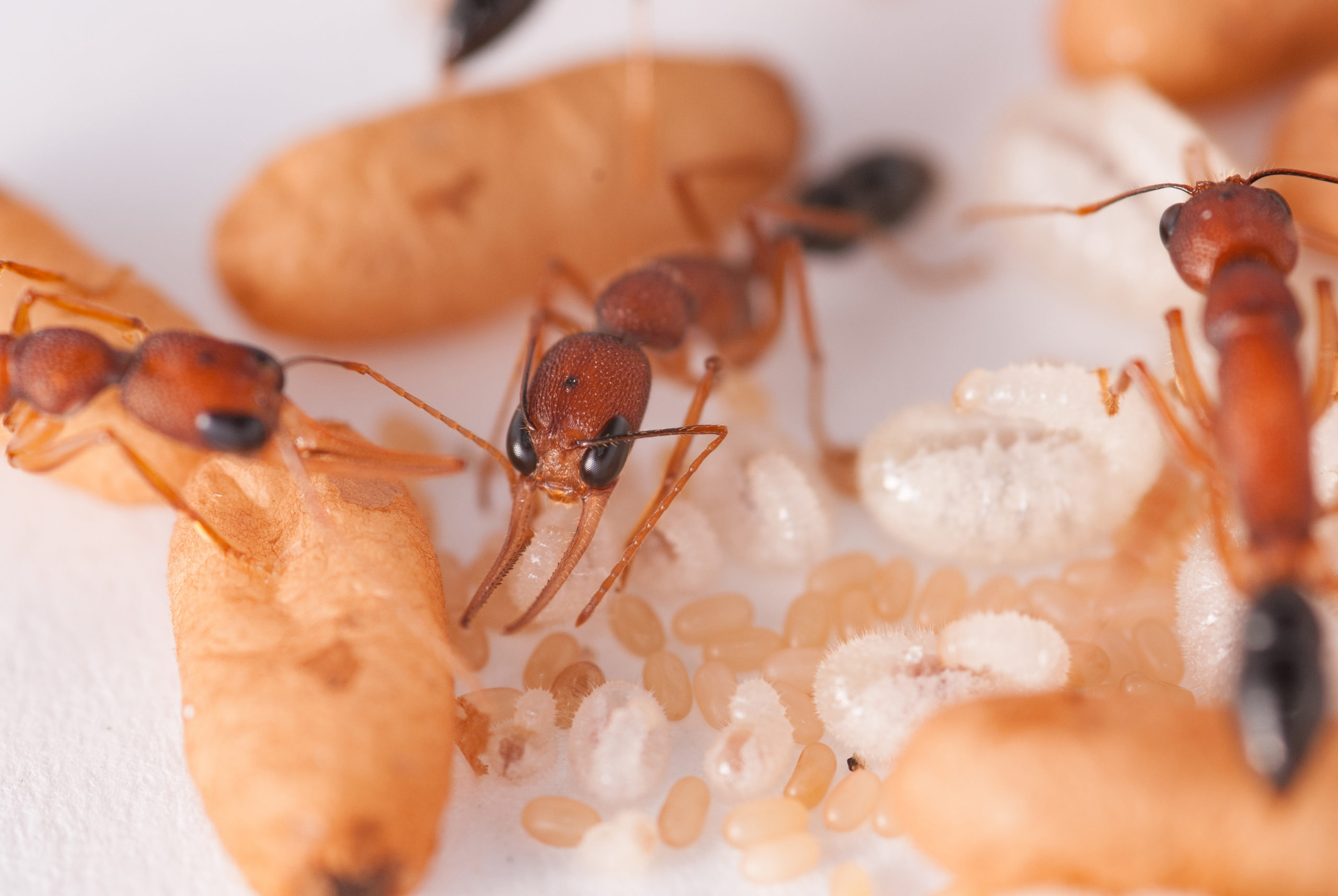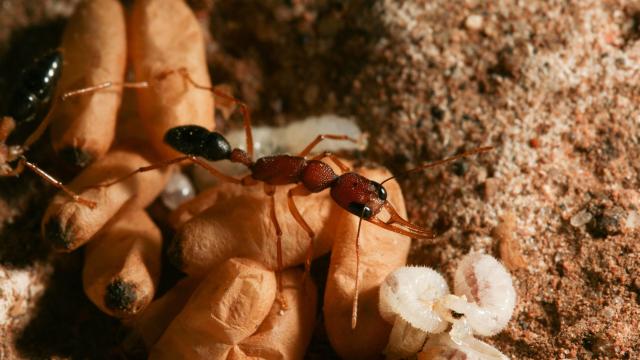Based on the popular Disney film The Lion King, I assume identifying lion royalty is fairly easy. After all, an elder baboon, Rafiki, presented the young lion prince Simba to the entirety of the animal kingdom from atop Pride Rock during some ceremony yet-to-be-observed by humans. But how do the ants know who’s going to be their next monarch?
Image: Clint Penick
A new study of Indian jumping ants determined that ants have the same sort of thing going on, but without all of the singing or giraffes and zebras bowing. Instead, the study seems to show that a royal perfume — a princess pheromone — lets workers know which larvae are going to be queens.
“There had been a lot of work in general on how queens develop, but mostly focused on what causes larvae to turn into a queen or what food workers would feed larvae that makes them more likely to be queens,” said Clint Penick, the study’s author from North Carolina State University. “All this hinges on whether workers can tell the difference whether a larvae will be a queen or not.”

Image: Clint Penick
So, the researchers smeared some Indian jumping ant larvae with a juvenile hormone, and watched how the worker ants reacted. When larval ants start become the larger, winged queens out of season, said Penick, the other female workers bully them by biting them, stressing the would-be monarchs into submission to keep them as workers. The researchers observed that a juvenile hormone wipe, like a forehead mark from Rafiki’s thumb, caused larval ants to start producing more princess pheromone, spurning a reaction from the attending worker ants.
But it wasn’t just would-be queens that started producing the stuff. These ant’s social structure consists of an army of female workers in charge of feeding the queen and supporting the hives. Every so often, a pea-brained winged male will be born, whose job it is to leave the hive, find a queen to bone, and die. But even the tiny-headed daddy ants started producing the princess pheromones in response to a hormone smear.
“That shows there’s a direct connection between juvenile hormone and princess pheromone,” said Penick, “because you can make males smell like princesses,” a statement that made me hopeful that I, too, may one day smell like a princess.
Penick was fairly certain about his study’s outcome, but did point out that we don’t quite know what chemicals comprise this princess pheromone just yet — that’s what he’d like to find out next. And of course, this is just one study whose evidence would be bolstered by reproduction.
But the results shouldn’t be so surprising — honeybees seem to have a pheromone of their own to communicate between larvae and workers, for example.
Wow, ants. They’re just like us. Asante sana squash banana.
